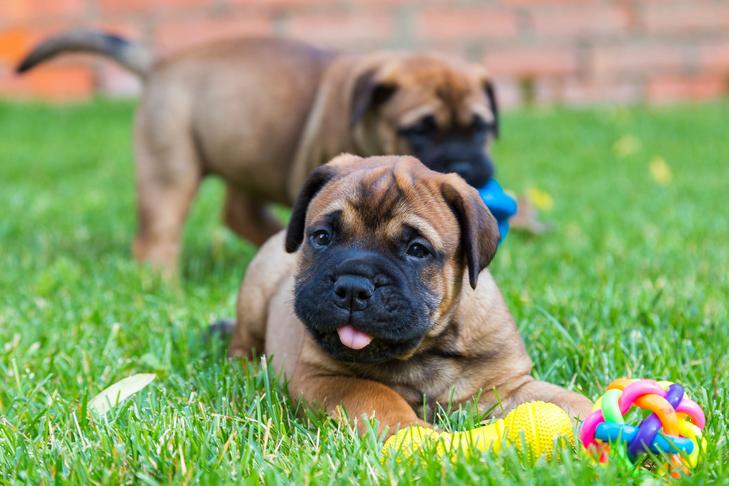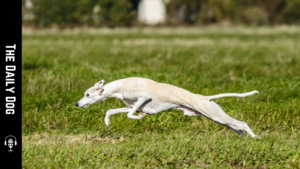Give Your Puppy the Confidence to Succeed in the Real World
Bringing home a new puppy is exciting, and a little overwhelming. Between potty training, teething, and teaching basic obedience, it can feel like you’re juggling a dozen priorities at once. But there’s one thing that matters more than anything else during those early weeks: socialization.
At Alaska Dog Works, we often tell new puppy parents that socialization is the single most important investment they can make in their dog’s future. A properly socialized puppy grows into a confident, adaptable adult who can handle whatever life throws their way, from city sidewalks to Alaskan trailheads, from family gatherings to vet visits.
Let’s break down what socialization really means, why it’s so critical, and how to do it right.
What Is Puppy Socialization?
Socialization is the process of introducing your puppy to the world in a positive, controlled way during the most formative period of their life, roughly between 3 and 16 weeks of age.
During this time, your puppy’s brain is rapidly developing and highly receptive to new experiences. They’re forming their “worldview,” deciding what’s safe, what’s scary, and how to respond to new sights, sounds, people, and environments.
When done correctly, socialization teaches your puppy that the world is full of good things. When skipped or mishandled, fear, anxiety, and reactivity can take root.
Why Socialization Is So Important
A well-socialized dog is one that can confidently navigate new situations without fear or aggression. This isn’t just about being “friendly” it’s about emotional stability and resilience.
Here’s why early socialization is so important:
1. Prevents Fear and Aggression
Many behavior problems in adult dogs, like barking, growling, or lunging at strangers or other dogs, stem from poor socialization. A puppy that’s gently exposed to different experiences learns that new things aren’t threats.
2. Builds Confidence
Confident dogs recover quickly from surprises. Whether it’s a vacuum cleaner, a passing bike, or an unfamiliar dog, well-socialized puppies learn to take new stimuli in stride instead of panicking.
3. Supports Future Training
Dogs that are comfortable and relaxed learn faster. A fearful dog struggles to focus; a confident one can engage and work with you even in busy environments.
4. Creates Safer, Happier Companions
A socialized dog is easier to handle, less likely to bite out of fear, and more welcome in public spaces. This makes life easier for both dog and owner, and opens doors to advanced work like therapy, service, or adventure training.
The Science Behind the Socialization Window
Behavioral research shows that puppies experience a critical period of social development between 3 and 16 weeks. During this window, they’re curious, open-minded, and primed to absorb information about the world.
After 16 weeks, their natural wariness increases, and new experiences may feel threatening instead of exciting. That’s why socialization should start early, but safely.
At Alaska Dog Works, we often see the difference firsthand. Puppies who were thoughtfully socialized as part of our Peak Puppy Program tend to adapt easily to city noises, travel, and new people. Those who missed this window often require additional behavior modification later to overcome fear or reactivity.
What Proper Socialization Looks Like
True socialization is more than just letting your puppy meet other dogs. It’s about controlled exposure to the world, teaching your puppy that new sights, sounds, surfaces, and people are safe and rewarding.
Here’s what that means in practice.
1. People of All Kinds
Expose your puppy to people wearing hats, sunglasses, backpacks, or uniforms; people who use wheelchairs or walkers; and children who move or sound differently. Reward calm, friendly behavior each time.
2. Other Dogs and Animals
Set up safe, positive encounters with vaccinated, well-behaved dogs. Avoid dog parks until your puppy is fully vaccinated and has good recall skills. Focus on quality over quantity, one great experience is worth more than ten stressful ones.
3. Environments
Take your puppy on short trips to new environments, parking lots, trails, pet stores, or neighborhoods. Let them explore new textures like grass, gravel, wood, and snow (especially important for Alaska pups). Always keep sessions short and upbeat.
4. Sounds
Introduce noises gradually, cars, vacuum cleaners, thunder recordings, or even airplanes overhead. Pair sounds with treats and play so your puppy learns they’re no big deal.
5. Handling and Grooming
Teach your puppy to accept gentle touch on their paws, ears, tail, and mouth. Regularly simulate vet and grooming appointments with treats and praise.
The Right Way to Introduce New Experiences
How you introduce your puppy to the world is just as important as what you expose them to. The goal isn’t to overwhelm, it’s to build confidence through success.
Go at Your Puppy’s Pace
If your puppy freezes, hides, or tucks their tail, it means they’re overwhelmed. Take a step back, add more distance, and slow down. Forcing interactions can create lasting fear.
Pair Every Experience with Positivity
Use food, toys, or praise to create positive associations with each new sight or sound. For example, when your puppy hears a loud truck, offer a treat. Over time, they’ll learn to associate noise with something good.
Keep Sessions Short and Sweet
Five to ten minutes is plenty for young puppies. Always end on a high note, with your puppy happy and confident.
Use the 3-3-3 Rule as a Guide
It often takes 3 days for a puppy to decompress in a new environment, 3 weeks to start understanding routines, and 3 months to feel fully comfortable. Be patient and celebrate small wins.
Socialization and Vaccination: Finding the Balance
One of the most common questions we get at Alaska Dog Works is:
“Can I socialize my puppy before they’re fully vaccinated?”
The answer is yes, but carefully.
While puppies shouldn’t visit high-risk areas like dog parks or public lawns, safe socialization is still essential. You can:
Invite friends with vaccinated, friendly dogs for playdates.
Carry your puppy in a backpack or stroller to observe new places from a safe distance.
Visit pet-friendly stores where dogs aren’t allowed to roam freely on the floor.
Attend structured puppy classes, like those offered in our Peak Puppy Program, where all participants follow strict health protocols.
The American Veterinary Society of Animal Behavior supports early socialization, noting that the risk of behavioral problems from isolation is far greater than the risk of disease when proper precautions are taken.
Common Socialization Mistakes to Avoid
Even well-meaning owners can accidentally make socialization harder instead of easier. Here are the biggest pitfalls we see, and how to avoid them:
1. Doing Too Much Too Fast
Overwhelming your puppy with too many experiences in a short time can backfire. Gradual, positive exposure is the goal.
2. Allowing Negative Experiences
If your puppy is scared by another dog or loud noise, don’t force them to “get over it.” Comfort them calmly and create distance. Reintroduce later at a lower intensity.
3. Ignoring Body Language
Learn to recognize signs of stress, lip licking, yawning, avoidance, tail tucked, and respond appropriately. Socialization should build trust, not anxiety.
4. Skipping Ongoing Socialization
Socialization isn’t a one-time event. Keep exposing your puppy to new situations throughout adolescence (up to 18 months) to reinforce their confidence.
How Alaska Dog Works Helps Puppies Thrive
Our Peak Puppy Program and Lead Dog Service Dog Training Program integrate socialization as a core element not an afterthought. We don’t just train obedience; we shape well-adjusted, emotionally balanced dogs who can handle real life.
Here’s how we do it:
Structured Exposure: Every puppy session includes controlled socialization exercises, from walking through Anchorage’s parks to exploring public spaces.
Confidence Building: We use reward-based methods to teach puppies that curiosity pays off.
Handler Education: We coach owners to recognize body language, manage environments, and build consistency at home.
Real-World Integration: We prepare puppies for the sights and sounds they’ll encounter in Alaska from wildlife to snow machines to busy trailheads.
When your puppy grows up under this kind of structure, they don’t just “know commands” they trust you and thrive anywhere.
Real Story: From Timid to Trail-Ready
One of our Peak Puppy graduates, Luna, came to us terrified of new sounds and people. Her owners couldn’t even walk her through downtown Palmer without her trembling.
Through gradual, reward-based socialization, starting with quiet environments, then progressing to busier streets, Luna blossomed. By six months, she was confidently trotting through town and greeting strangers with a wagging tail.
That transformation is what socialization done right looks like: calm curiosity replacing fear.
The Long-Term Benefits of Early Socialization
Socialization isn’t just for the first few months, it sets the tone for your dog’s entire life. Dogs who are properly socialized tend to:
Adapt easily to new homes, travel, or family changes
Exhibit fewer behavioral issues, such as reactivity or fear
Respond faster to training and commands
Remain calm during grooming or vet visits
Enjoy fuller, happier lives with their families
In our experience, the difference between a well-socialized dog and one that missed the window is night and day. One feels at ease in the world, the other struggles to cope with it.
Start Socializing the Right Way
If you’re raising a puppy in Alaska, or planning to bring one home soon, now is the time to act. The habits, confidence, and mindset you build today will shape your dog’s behavior for life.
Whether you want a confident family companion, a future therapy dog, or even a potential working partner, Alaska Dog Works can help. Our trainers use real-world, reward-based methods to guide your puppy through the socialization process safely and effectively.
Call to Action
Give your puppy the best start possible. Schedule a strategy call with the trainers at Alaska Dog Works today to learn how our puppy programs can help you raise a calm, confident, and well-socialized dog.
👉 Call 206-752-DOGS or visit AlaskaDogWorks.com to get started.










